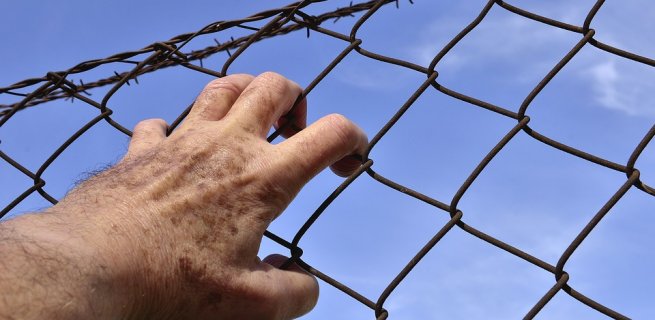It’s been a subject of some debate over the years – should a person who has a serious criminal conviction be allowed to practise law?
Professional misconduct can certainly lead to a lawyer being ‘struck off’, never to practise again – but what about when crimes were committed before trying to become a lawyer?
Some believe that any criminal conviction should prevent a person from becoming a lawyer. But the approach in Australia is far less strict than that.
Less than two months ago, a man was reportedly admitted to practise as a lawyer despite having a criminal record that stretches back to February 1999, including offences relating to dishonesty, drugs, larceny, property damage and a string of driving offences including multiple counts of drink driving.
Perhaps the public might expect a line to be drawn at certain types of crimes. Some may be so serious that it could be hard to imagine that the offender could become a respected member of the legal profession.
But just two weeks ago, in the case of MCF [2015] QCA 154, a man convicted of downloading child pornography was admitted as a lawyer in Queensland. Indeed, he was found to be a “fit and proper” person under the Legal Profession Act 2007 (Qld).
On its face, this seems like an unthinkable decision – one that has the potential to bring the legal profession into disrepute.
But the courts have consistently found that someone can be a “fit and proper” person despite having a serious criminal record. It all depends on the circumstances of the particular applicant.
What does “fit and proper” mean?
The NSW Legal Profession Act says that when assessing whether someone is a “fit and proper” person, the Law Society will look at whether they:
1. Are currently of good fame and character,
2. Have ever been insolvent under administration,
3. Have a criminal record, and the nature and extent of that record,
4. Have ever practised law either in Australia or overseas when not admitted,
5. Have been the subject of an unresolved complaint, investigation, charge or law,
6. Have been the subject of any disciplinary action,
7. Have had their name removed from any local, interstate or foreign roll,
8. Have contravened any law about trust money or trust accounts,
9. Have been the subject of an order disqualifying them from being employed by, or a partner of an Australian legal practitioner or incorporated legal practice, and
10. Are unable to currently satisfy the inherent requirements of practice
So, while a criminal record is a relevant factor, it won’t necessarily prevent an applicant from being admitted as a lawyer.
What does “good fame and character” mean?
It might seem contradictory that someone who has been convicted of a serious crime could ever be of “good fame and character”.
But it should be kept in mind that the person must currently be of good fame and character; which means that crimes committed long ago often carry less weight.
The conduct of the applicant after the commission of the offence will often be highly relevant to the determination of “fame and character”.
Case law
Courts have found time and again that the existence of a criminal conviction does not necessarily render a person unsuitable to become a lawyer.
In the landmark decision of Ziems v Prothonotary of Supreme Court (NSW) (1957) 97 CLR 279, Justice Kitto said:
“A conviction may of its own force carry such a stigma that judges and members of the profession may be expected to find it too much for their self-respect to share with the person convicted the kind and degree of association which membership of the Bar entails. But … [there are] many kinds of convictions of breaches of the law, which do not spell unfitness for the Bar; and to draw the dividing line is by no means always an easy task.”
While most people agree with this statement, there have been a string of controversial decisions that bring it sharply into question.
In 2004, in the case of A Solicitor v Council of the NSW Law Society [2004] HCA 1, a lawyer was not “struck off” despite being convicted of child sex offences against his two step daughters. The lawyer was later found guilty of professional conduct, but this was for failing to disclose a later conviction rather than the existence of the convictions for child sex offences.
And in the recent case of MCF [2015] QCA 154, the court found that a man was of good fame and character despite being convicted of child pornography charges. In reaching that decision, the court took into account his efforts towards rehabilitation and outstanding university grades.
So it is clear that people can be seen as of “good fame and character” and admitted as lawyers, despite being convicted of extremely serious crimes.












“Larceny”? in Australia?
Hey I have recently finished my 8 year sentence for manufacture of fire arms and large commercial supply of cocaine and acts of a criminal enterprise etc. Since being released from gaol I have turned my life around changed my whole mind set completely. I have now completed my parole and bought my own gym. I just wondering if it would ever be possible for me to pass the bar. I have a passion for law and seen to many people I care about get caught up in the system for things they haven’t done etc. If anyone has feedback or experience in relations to my situation i would appreciate it, thanks.